TOMSK, Sep 24 – RIA Tomsk, Vyacheslav Matvievsky. The "Clean Laboratory" created at Tomsk Polytechnic University for the design of microelectromechanical sensors may allow the university to become a leader in Russia in the production and supply of such systems to the domestic "space" market, the director of the TPU School of Non-Destructive Testing Dmitry Sednev told.
© с сайта ТПУ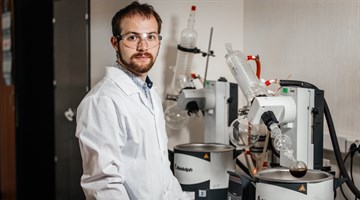
Earlier, the TPU press service reported that the university has created the only "clean laboratory" beyond the Urals, where microelectromechanical sensors (gyroscopes, accelerometers, magnetometers) can be designed and studied. The cost of equipping the laboratory itself and the purchase of equipment amounted to about 10 million rubles. Funds for its creation were allocated under the Federal Target Program.
According to the press service, foreign companies are already producing such sensors, in Russia this market is less developed. In addition, not all objects can be supplied with imported sensors. Therefore, now in the Russian Federation there is a high demand for its own sensors. They can only be created in "clean rooms" in which air filtration systems remove all dust, otherwise dust particles will clog the gaps between the moving elements of the mechanical part of the sensor.
"Evolutionary development"
As Sednev said at the opening ceremony, the creation of the laboratory - is "an evolutionary development of our research, which has been going on for a long time".
“I think that this will give a good impetus, which will further allow us to take the lead in Russia in creating systems that are fundamental navigation systems for satellites, for Roscosmos, for JSC Information Satellite Systems Reshetnev. Everything related to communications and special applications", - he said.
© предоставлено Томским политехническим университетом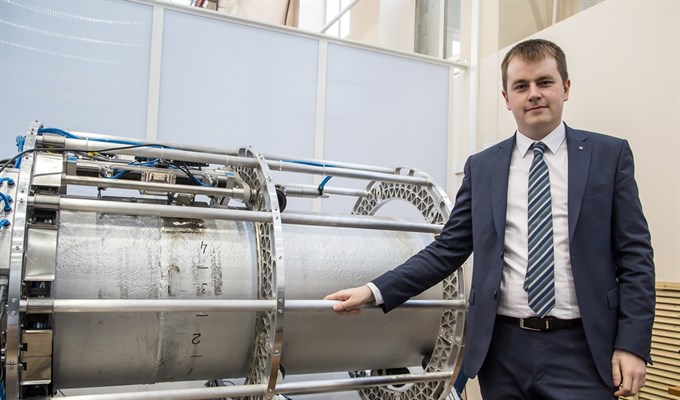
Dmitry Sednev
According to Sednev, such "clean rooms" in Russia are also available in several Moscow and St. Petersburg universities. “I would like to emphasize that at TPU this room is narrowly focused on the creation of microelectromechanical systems - all equipment and specialists are customized to this. I think that the same equipment, in the same configuration, is nowhere else”, - he noted.
© РИА Томск. Таисия Воронцова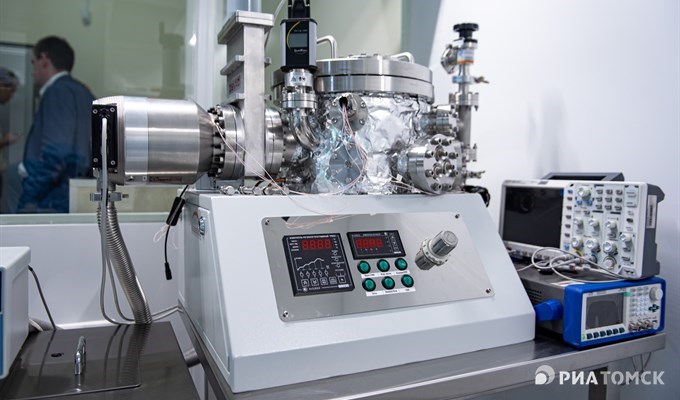
Equipment in the TPU "clean laboratory"
The director of the TPU School of Non-Destructive Testing also said that for the next couple of years the university sees its task as direct work with customers to develop technologies for microelectromechanical systems, and in the future - to become a reference point for creating developments that will go into mass production and be installed on domestic satellites.
"Now we are working directly with industrial partners. At the moment, an agreement with Russian Space Systems is under discussion. They want to produce accelerometers at our base and then put them into production lines at their place", - he added.
© РИА Томск. Таисия Воронцова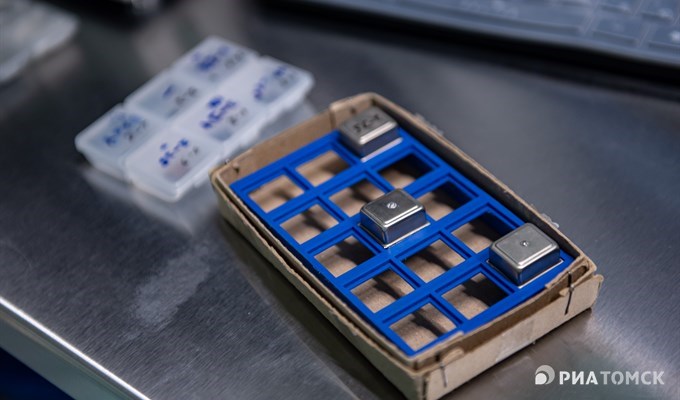
Parts for microelectromechanical sensors
Is it clean in a "clean laboratory"
"The room has the sixth class of cleanliness according to the international classification. This means that dust particles more than 5 microns are not present within this room. There are special hoods, dust collectors, filters. Specialists also undergo processing and change clothes so that no equipment and microcircuits are damaged and not out of order", - Sednev told.
An employee of the laboratory, senior lecturer of the TPU School of Non-Destructive Testing Aleksey Koleda told RIA Tomsk that before entering the laboratory, a specialist must put on a mask and gloves, a protective helmet and a suit, and then walk on a "sticky" mat, which removes dust particles from the sole, and only then get to work.
© РИА Томск. Таисия Воронцова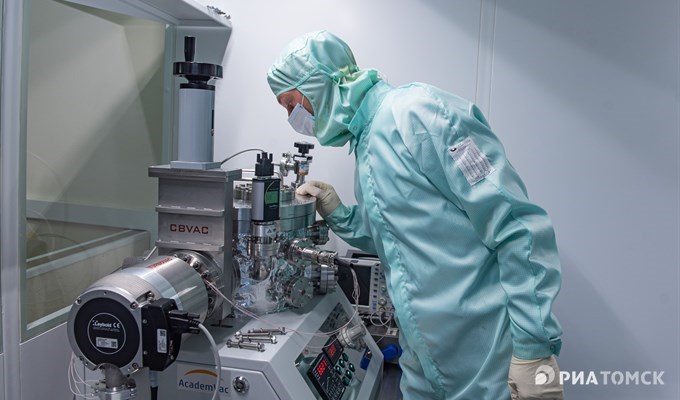
TPU "clean laboratory" employee
"On average, the temperature in the laboratory is plus 23 degrees. In winter, we even warm up in it sometimes, and in summer we languish from the forty-degree heat, even with the hood working ... The maximum that I was inside without a break was 8-10 hours", - he explained.
Таисия ВоронцоваThe "Clean Laboratory" created at Tomsk Polytechnic University